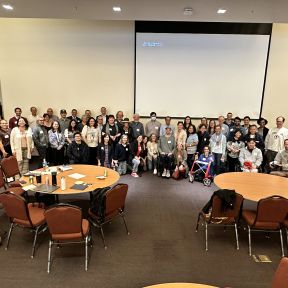
Self-Help
On the eve of each new year, people commit to making lifestyle changes they believe will usher in personal satisfaction and happiness. But while an entire industry exists to help people meet these pressing goals, most individuals still flounder. How many times can a person try to lose weight, quit smoking, cut back alcohol consumption, or try to find a more suitable purpose in life? One answer: As many times as it takes to get it right.
In contemporary parlance, the term self-help is associated with actions and interventions that a person can take on their own or with guided literature, as opposed to working with a clinician. Self-help can help you think about your goals with a big picture view. It encourages you to, for example, outline your short-term and long-term goals, and whether they are realistic and achievable. Self-help can also help you be more systematic in the way you approach the changes you want to see. For starters, making a list of the benefits of achieving your goals can be motivational, and setting a timeframe for meeting both short-term and long-term goals helps, too.

From the dawn of recorded time, humans have sought to better themselves and their lot in life. And using self-help to change your life starts with identifying one's needs. Addressing these needs both specifically and broadly can help. Knowing what you want to change and what you need to do to affect that change are key.
Lasting change is difficult to achieve because many of our habits are deeply ingrained, and certain core personality attributes may be immutable. But all habits and character traits can be altered to varying degrees. It's never too late to change and with effort and determination, it is possible to be the person you want to be, or at least someone closer to it. Of course, it’s good to be flexible because goals can change.
Conventional wisdom says that improving willpower is supposed to help you reach your goals. But reaching those goals have little to do with sustained willpower; it's more about structuring your environment, habits, and conditions so that you do not have to worry about willpower. Change your environment if you want to stop engaging in a bad habit.
Self-improvement can be highly useful. But going to legitimate sources is important. There are numerous books and websites that are legitimate, applicable, and serviceable. Some websites provide tools that help users assess whether the website is actually helping them. Also, responsible books and sites use peer-reviewed research and evidence.
Self-help can work wonders for common problems like worry and anxiety. We look around for the next mishap waiting to happen. This is an area where self-improvement can be effective, it can point out how to surmount anxiety just through simple methods of reducing stress like mindfulness and visualization, for example. Stage-fright is another case in point, self-help can be enormously useful for this common problem. This type of anxiety can turn into a fight-or-flight scenario and become debilitating mentally and physically. It may present itself with memory blanks, self-doubt, shame, and shaking, but self-awareness does improve the situation.
Yes. You cannot make much headway without deploying much-needed self-care. You have to invest in yourself through self-care. Yet, two in three people do not engage in such care. The basic checklist of self-care entails eating right, adequate sleep, physical fitness, stress reduction, annual visits to your physician.
Engaging in self-improvement is better than doing nothing. And depending on the problem at hand, it can be just as effective as one-on-one attention from a professional clinician. Generally, information based on peer-reviewed science is the standard to adhere to; self-help, when executed intelligently, can work.
Self-help doesn’t necessarily mean going it alone. Mutual support groups for priorities like weight control, mental health, physical health, aging, bereavement, parenting, caregiving, career change, and addiction-related recovery not only provide like-minded companionship and encouragement but also knowledge and direction from peers and others. Personal characteristics, along with the nature and severity of the problem being addressed, will contribute to the effectiveness of any individual or group self-help plan.














